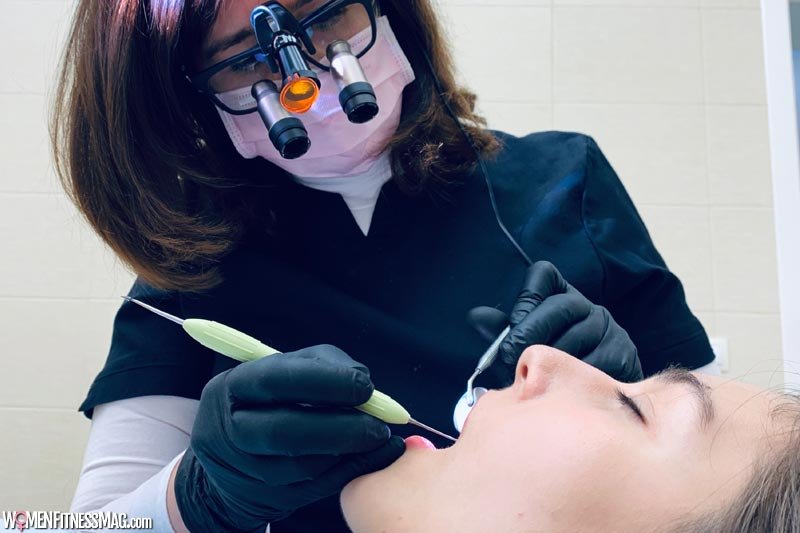3 Types of Sedation Dentistry : Are you looking for ways to improve your dental experience? If so, then you should consider sedation dentistry. Sedation dentistry involves using medications or other methods to relax patients.
The procedures may be dental fillings, root canal treatments, or dental implant treatments.
Sedation dentistry has become common over the last decade. Sedation dentistry is beneficial for patients of all ages, including youngsters and those who struggle with dental anxiety.
Well, what are the types of sedation dentistry? Find out here!
What Are the Types of Sedation Dentistry?
Sedation dentistry comes in different levels depending on your requirements. The level of anxiety, the length of your surgery, medical history, and personal preferences are all critical variables.
Nitrous oxide, oral conscious sedation, and intravenous (IV) sedation are the three most used sedation dentistry techniques. Each of them has its role. For example, nitrous oxide (laughing gas) is often used to treat anxiety. At the same time, you get intravenous sedatives to reduce pain.
Nitrous Oxide
Nitrous oxide (laughing gas) is a gas used in dentistry for its analgesic effects. Its use is safe and effective in reducing anxiety and pain. You inhale nitrous oxide through a mask. It takes a few minutes before it enters the bloodstream and travels to the brain. In the brain, it binds to opioid receptors. The receptors are responsible for producing the feeling of euphoria and relaxation.
Laughing gas wears off quickly in contrast to other forms of anesthesia in dentistry. However, once we take off the mask, any adverse effects end. You will therefore be able to drive yourself home or to your place of employment.
Laughing gas poses the fewest risks compared to other sedative techniques. But, for more intense procedures, you’ll need a local anesthetic to prevent pain.
Oral Conscious Sedation
Oral conscious sedation is a technique that uses medications to put patients in a very relaxed but still awake state. Patients do not lose consciousness. They receive a mild dose of medicine that keeps them asleep but remains awake and alert.
Your dentist administers sedative medication (often in pill form) an hour or so before the start of your procedure. Most dentists use the diazepam (Valium®) family drug triazolam (Halcion®).
Besides them, your dentist may also prescribe lorazepam and zaleplon. Also, dentists use liquid sedation in pediatric dentistry, such as midazolam oral syrup.
You become sleepy after oral sedatives, and you may even nod off. But you will still be able to speak with your dentist if necessary. You will need a friend or family member to drive you home following your treatment. Oral sedation temporarily impairs your memory and motor skills.
Intravenous Sedation
Intravenous sedation is a type of sedative administered via injection. It is used to induce sleep in patients who need medical treatment but cannot tolerate the side effects of traditional sedatives.
With IV sedation, your doctor will put an IV line into a vein in the crook of your arm. The drug flows continuously through the IV line. You will be asleep the entire time.
With this sedation, you will feel safe and secure. You’ll receive high-quality dental care without stress or discomfort. Your vital indicators are closely watched, and the dentist will ensure you breathe normally with an oxygen mask.
FAQs
What Should I Anticipate From Sedation Dentistry?
While oral sedation won’t make you pass out in the dental chair, it may cause you to nod slightly. You’ll be aware of what’s occurring and able to interact with your dentist and the team, but you might not recall much of the process.
Does Sedation Dentistry Cause Pain?
With sedation dentistry, you experience no pain. Your dentist will use anesthesia to make you comfortable the entire time. Many people feel excellent following their appointments and often have little to no memory of their treatments.
Are You Awake When You Receive Dental Sedation?
Sedation dentistry makes you feel at peace, calm, and relaxed during dental operations. Because of the moderate sedation dose, you are technically still awake but extremely relaxed. In some situations, you are put under general anesthesia and will not be conscious.
How Much Does Dental Sedation Cost?
Depending on each patient’s specific needs, adding sedation to your treatment comes at a different cost. The final sedation dentistry costs of the treatment will depend on the sedation method used. Your dentist will present you with a comprehensive price quote during your consultation.
Related Videos about Types of Sedation Dentistry :
3 Types of Sedation Dentistry
conscious sedation in dentistry, iv sedation dentistry what to expect, what drug is used for iv sedation in dentistry, iv sedation dentistry, sedation dentistry near me, oral sedation pediatric dentistry, how long does oral sedation last, sedation dentistry reviews,




